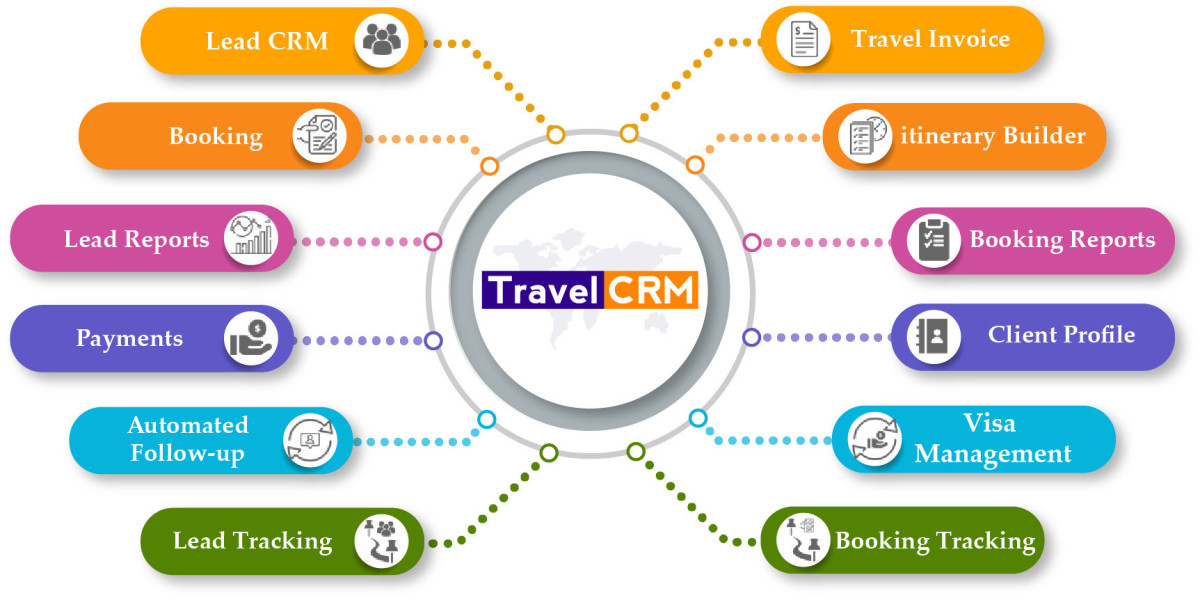Corporate travel clients can be very challenging to manage for a travel agency in the very competitive travel industry, mainly because such clients have specified needs, intricate itineraries, and more bookings. Here, therefore, are where Customer Relationship Management systems tailored for use with travel prove effective in the management of clients in terms of offering excellent service. Why are CRM solutions necessary for managing corporate travel clients?
1. Effective Communication
Corporate clients have more or less specific needs related to travel. The communication therefore has to be clear and transparent. A travel CRM system helps streamline communication so that all details regarding the clients are accumulated in one place. This includes finding booking history, preferences, and special requirements, helping them provide personal service, and ensuring that no detail goes unnoticed.
Moreover, auto-communication with the CRM system makes it possible to send timely reminders on trips to be taken, and follow-up emails and itineraries are performed without manual keeping of each client.
The possibility to automate such tasks provides both consistency and efficiency while keeping the client at all times informed.
2. Better Customer Service
Corporate travelers are likely to have last-minute cancellations or bookings. Such a scenario necessitates an effective response by the agents. In this regard, a robust CRM system in travel agencies ensures that the agents can achieve quick response and effectiveness. Sophisticated information about previous interactions, along with details of travel preferences and frequent routes of travel, is maintained on CRM platforms. This allows agents to be effective in their response to queries or requests within a short period.
A CRM further enables agents to monitor issues and their respective solutions, ensuring no issue falls through the cracks. Agencies can thus build corporate clients' confidence by solving issues quickly and effectively. This leads to high client satisfaction and retention.
3. Tailor-made Service
Such corporate clients appreciate having personalized service, which manifests a deep understanding of their needs. Travel CRMs collect data about all the needs related to every client: airlines, hotels, seating, and travel times. Due to this, agents can tailor their services to meet the expectations of individual clients.
For example, a business customer who frequently attends business seminars in certain regions may indicate to the CRM that such a trend is happening, and then the agent is ready to offer appropriate lodging or alternative roads during the selling process. Personalization promotes stronger relationships with clients, more loyalty, and repeated business.
4. More Efficiency and Organization
Dealing with multiple corporate clients and their large travel requirements is a lot without the organization of bookings and itineraries. A travel CRM gets this process streamlined by enabling an agent to handle any number of clients. The agent can keep track of detailed itineraries, track upcoming bookings, and manage payments from one single platform, thereby avoiding a lot of potential errors.
CRMs can also integrate with travel booking systems, which can automatically make the entire process so that when a booking is made, the CRM will ensure a seamless workflow where an agent can discover the best deal for a client within seconds, confirm, and then send confirmation e-mails all within the CRM.
How much time this automation saves can go into offering more value-added services to clients.
5. Data-Driven Insights
A CRM system provides travel agencies with crucial knowledge about the behavior, preferences, and spending habits of clients. Equipped with this, agencies can establish how to serve corporate clients better. For instance, an agency finds out that a particular client is mainly booking a flight at the very last moment; therefore, the agent offers a specific arrangement or pricing in the form of flexible booking for the same client.
Furthermore, CRMs are equipped with reporting tools that empower agencies to monitor client activity, track performance, and analyze trends. Such an approach through data will enable agencies to streamline their services and maintain the general satisfaction of their clients at an all-time high.
6. Increased Client Retention
Corporate clients have the advantage of retaining over time for travel agencies, making retention very critical. Travel CRM helps agencies build a healthy relationship with their clients as it keeps track of all the interactions, preferences, and feedback. Knowing how to meet the changing needs of the clients will enable agencies to offer them services, incentives, and loyalty programs that will contribute to returning clients when bookings are made again.
It helps agencies maintain better corporate travel clients through these long-term, valuable relationships developed through customized service and clear communication.
Conclusion
Managing corporate travel clients is a complex matter; however, by having a travel CRM, communication with the client becomes much easier because it streamlines the process while providing personalized service, and offering data-driven insight. This would entail a strategic advantage in proper organization, efficient customer support, and better retention of clients for any travel agency looking to keep up with corporate high demands placed on its clients. The right investment into CRM has increased efficiency and strengthened relationships between the company and clients seeking more extended success in the corporate travel sector.







